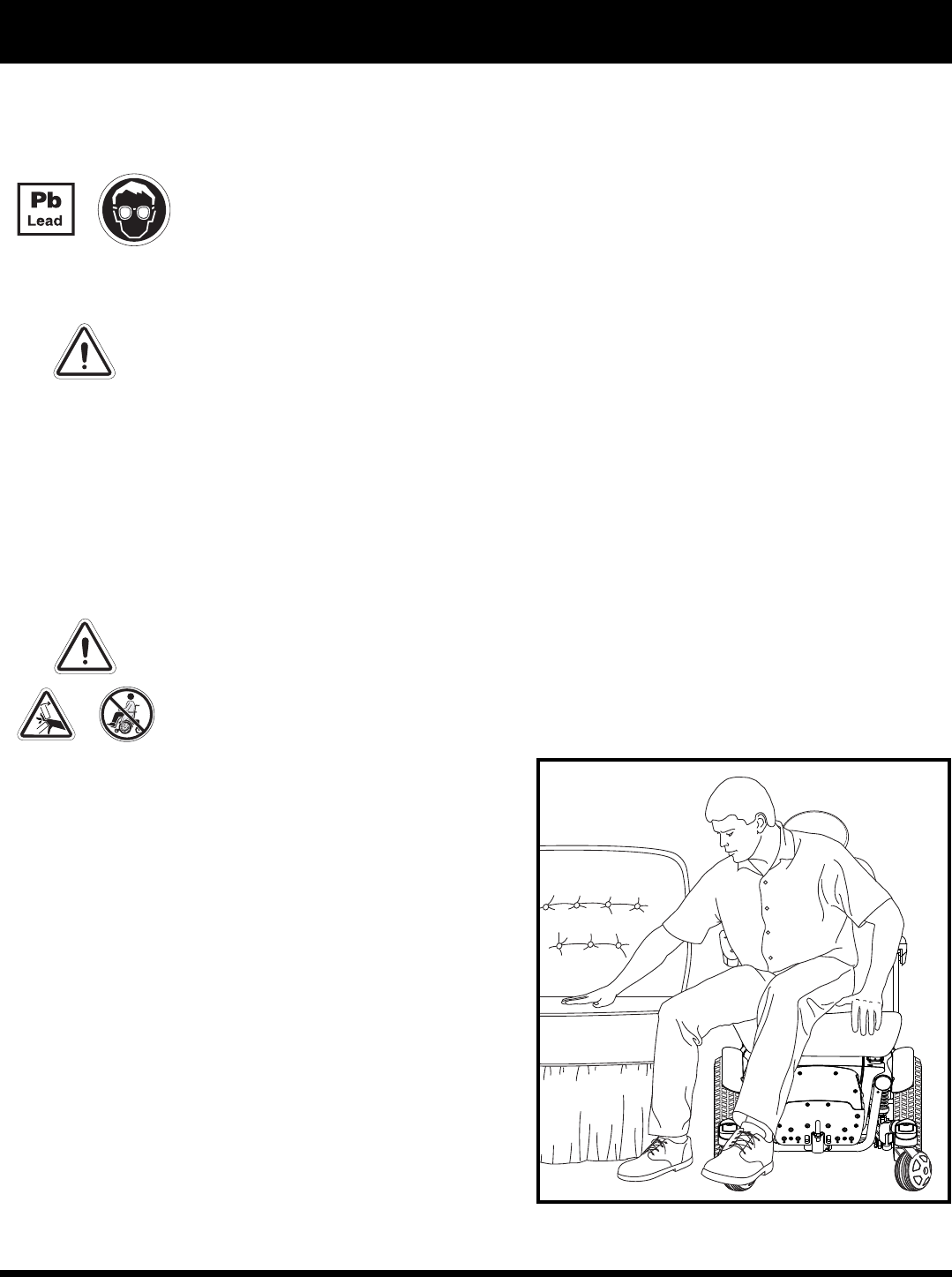
Quantum 600 Series www.pridemobility.com 15
Batteries
In addition to following the warnings below, be sure to comply with all other battery handling information. For
more information about your power chair’s batteries, see VI. “Batteries and Charging.”
MANDATORY! Battery posts, terminals, and related accessories contain lead and
lead compounds. Wear goggles and gloves when handling batteries and wash hands
after handling.
WARNING! Power chair batteries are heavy. See specifications table. If you are
unable to lift that much weight, be sure to get help. Use proper lifting techniques and
avoid lifting beyond your capacity.
WARNING! Always protect the batteries from freezing and never charge a frozen
battery. Charging a frozen battery may result in damage to the battery.
WARNING! Connect the battery harnesses in the proper manner. RED (+) cables must
be connected to positive (+) battery terminals/posts. BLACK (-) cables must be
connected to negative (-) battery terminals/posts. Protective caps should be installed
over all battery terminals. REPLACE cables immediately if damaged.
Reaching and Bending
Never reach, lean, or bend while driving your power chair. If it is absolutely necessary to reach, lean, or bend
while seated on your power chair, it is important to maintain a stable center of gravity and keep the power chair
from tipping. Pride recommends that the power chair user determine his/her personal limitations and practice
bending and reaching in the presence of a qualified healthcare professional.
WARNING! Do not bend, lean, or reach for objects if you have to pick them up from
the floor by reaching down between your knees or if you have to reach over the back
of the seat. Movements such as these may change your center of gravity and the
weight distribution of the power chair, possibly causing your power chair to tip.
WARNING! Keep your hands away from the tires when driving. Be aware that loose
fitting clothing can become caught in drive tires.
II. SAFETY
Transfers
Transferring onto and off of your power chair requires a
good sense of balance. Always have an attendant or health-
care professional present while learning to properly transfer
yourself.
To eliminate the possibility of injury, Pride recommends
that you or a trained attendant perform the following tasks
before attempting a transfer:
Turn off the power to the controller.
Ensure your power chair is not in freewheel mode. See
III. “Your Power Chair.”
Turn the caster wheels toward the transfer destination to
improve power chair stability during transfer.
Make sure both armrests are flipped up or removed
from your power chair.
Flip up the foot platform or move the leg rests aside;
this will help to keep your feet from getting caught on
the front rigging during the transfer.
Reduce the distance between your power chair and the
object you are transferring onto.
Figure 4. Ideal Transfer Position
